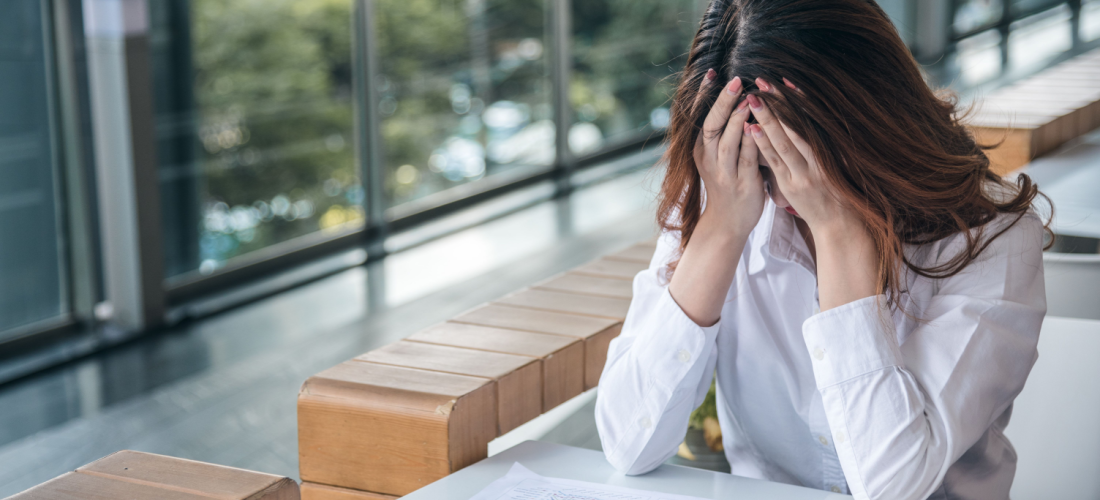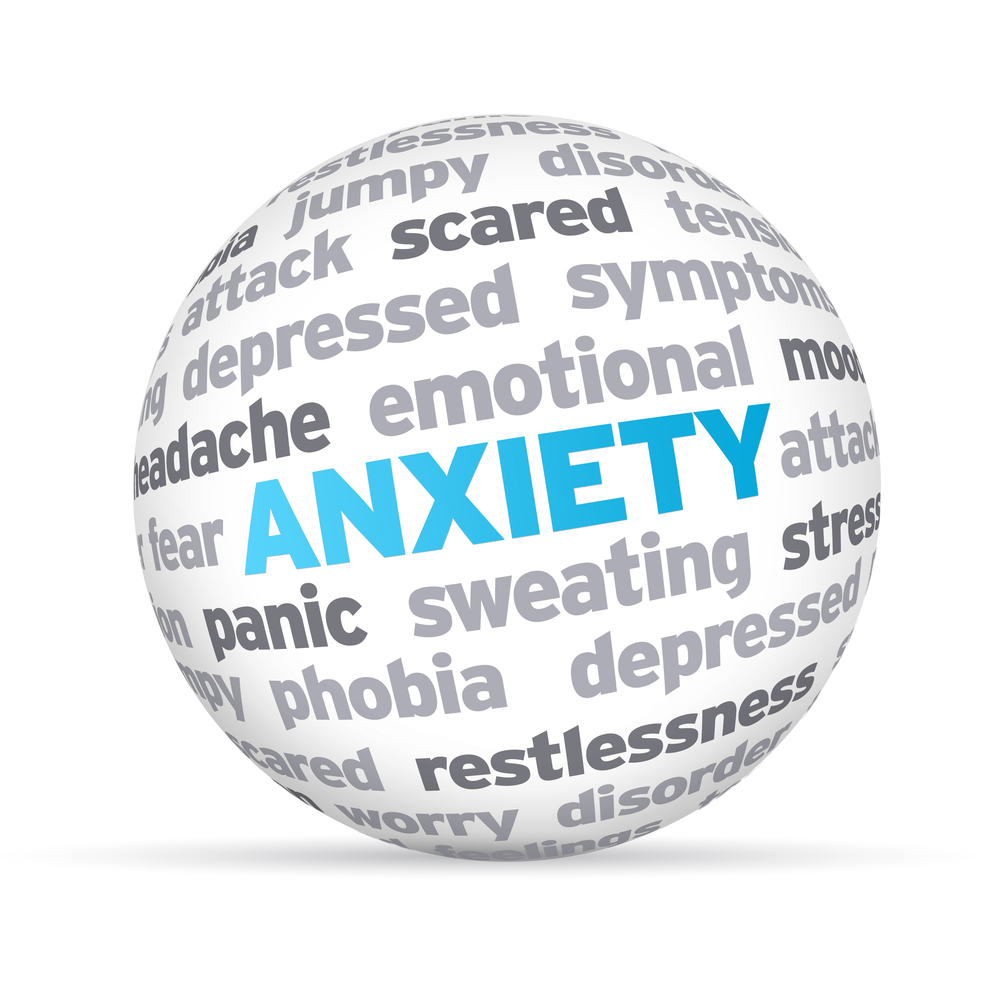Find balance and clarity with trusted counseling services for anxiety
Find balance and clarity with trusted counseling services for anxiety
Blog Article
Exploring Various Approaches in Therapy for Anxiousness Problem for Lasting Modification
When dealing with anxiousness problems, it's important to discover a selection of counseling strategies. Each method provides one-of-a-kind understandings and devices to assist you manage your symptoms efficiently. You might locate that incorporating methods can generate the most effective outcomes. Nevertheless, recognizing the nuances of these methods is key to cultivating long lasting change. What if the appropriate combination could launch a new degree of psychological health for you?
Understanding Anxiousness Conditions: A Quick Review
Anxiety conditions, which influence millions of individuals worldwide, can greatly influence every day life. You might experience frustrating sensations of anxiety or worry that seem irrepressible. These sensations can bring about physical symptoms like a racing heart, sweating, or perhaps dizziness. Common sorts of anxiety problems consist of generalized stress and anxiety disorder, panic attack, and social anxiety problem. Each has one-of-a-kind signs, yet they all share a tendency to interrupt your routine and relationships.Understanding the origin of your anxiety is important. It might stem from genetics, mind chemistry, or life experiences. Recognizing your triggers can assist you manage your actions much better. It's crucial to bear in mind that you're not alone in this battle. Several individuals deal with comparable obstacles, and seeking help is a solid step toward sensation better. By finding out concerning anxiousness conditions, you're already on the course to understanding and managing your condition much more efficiently.
Cognitive-Behavioral Therapy: Testing Unfavorable Idea Patterns
In Cognitive-Behavioral Therapy, you'll begin by recognizing the adverse idea causes that contribute to your anxiousness. As soon as you recognize these thoughts, you'll deal with replacing them with even more positive choices. With each other, you'll develop reliable coping methods to help manage your anxiety in everyday circumstances.
Recognizing Adverse Thought Triggers

When you come across minutes of distress, recognizing the details triggers behind your negative ideas can be crucial in managing stress and anxiety. Begin by taking note of situations that provoke feelings of fear or anxiety. Is it a congested space, a future due date, or a conversation with certain people? Write down these instances in a journal. This will assist you determine patterns in your thinking. Additionally, notice physical experiences that accompany your adverse ideas, like a racing heart or tightness in your upper body. By determining these triggers, you get insight right into what's fueling your anxiousness. Recognizing these links is the initial step in testing those ideas and inevitably regaining control over your psychological feedbacks.
Replacing Ideas With Positives
Testing negative idea patterns is a necessary action in changing your way of thinking and minimizing stress and anxiety. You might typically discover yourself entraped in cycles of self-doubt or catastrophic thinking. As opposed to letting these ideas determine your sensations, method changing them with reasonable options or favorable affirmations. For example, when you believe, "I can not manage this," shift it to, "I can manage challenges one step at a time." This simple adjustment can greatly impact your psychological state. Routinely determining and countering these adverse ideas helps produce a healthier interior discussion. Remember, it takes some time and effort, but regularly exercising this method can result in enduring change, equipping you to face stress and anxiety with renewed self-confidence and resilience.
Structure Coping Approaches With Each Other
Replacing unfavorable ideas is just the beginning of managing stress and anxiety properly. To produce enduring change, you require to build coping techniques that encourage you. Cognitive-Behavioral Therapy (CBT) helps you recognize and test those purposeless idea patterns. With each other, you and your counselor can discover how these ideas effect your feelings and behaviors.Start by developing functional techniques, like journaling or mindfulness workouts, that enable you to challenge anxiousness head-on. When you encounter your anxieties progressively, you'll find out to react differently.

Mindfulness and Acceptance-Based Approaches: Growing Present-Moment Awareness
As you browse the intricacies of anxiety, including mindfulness and acceptance-based techniques can substantially boost your capacity to cultivate present-moment awareness. By focusing on the present moment, you'll find that you can observe your ideas and feelings without judgment (Counseling services for anxiety). This practice helps you acknowledge your anxiousness without really feeling bewildered by it.Engaging in mindfulness exercises, such as deep breathing, body scans, or directed meditations, permits you to ground yourself in your existing experience. Acceptance-based approaches urge you to welcome your feelings rather than deal with versus them. When you approve your sensations, they shed their power over you.Incorporating these methods into your daily regimen can change just how you react to anxiousness. You'll establish resilience and find out to browse difficult situations with greater ease. Eventually, growing present-moment recognition lays the structure for enduring adjustment, equipping you to lead a much more fulfilling life
Direct Exposure Treatment: Challenging Worries Progressively
Direct exposure therapy helps you confront your fears in a steady means, making it much less frustrating. You'll discover strategies to encounter anxiety-provoking circumstances detailed, while also constructing coping approaches to handle your reactions. This strategy empowers you to take control and reduce anxiety over time.
Gradual Exposure Methods

When encountering stress and anxiety, gradually challenging your worries can be an effective way to restore control. This technique, referred to as gradual exposure, includes slowly exposing on your own to the scenarios or things that activate your anxiousness. Begin with less intimidating circumstances and progressively work your method up to even more challenging ones. If you're afraid of public speaking, you could start by talking in front of a mirror, then proceed to sharing ideas YOURURL.com with a close friend, and at some point address a small team. Each step helps desensitize you to the fear, developing your self-confidence gradually. Bear in mind, it's vital to pace yourself and celebrate tiny success as you relocate with this procedure, reinforcing your ability to handle stress and anxiety effectively.
Building Coping Methods
Building reliable coping strategies is important for taking care of anxiousness, particularly as you challenge your concerns gradually - Counseling services for anxiety. One effective approach is direct exposure therapy, where you begin by facing your worries in a regulated fashion. Start with much less intimidating circumstances and slowly work your method as much as more tough circumstances. This gradual direct exposure helps desensitize you to anxiety sets off, making them much less overwhelming.Incorporate leisure techniques, such as deep breathing or mindfulness, to calm your mind during exposure. Track your progression, commemorating little success in the process to boost your self-confidence. Keep in mind, it's alright to take your time; the goal isn't excellence yet stable improvement. By developing these techniques, you'll empower yourself to navigate stress and anxiety and welcome life extra totally
Psychodynamic Therapy: Revealing Origin of Anxiety
Psychodynamic treatment explores the unconscious mind, exposing the origin triggers of your anxiousness. By examining your ideas, sensations, and past experiences, this technique assists you uncover underlying conflicts and unresolved concerns that might add to your existing anxiousness. You'll collaborate with a therapist to investigate childhood experiences, relationships, and emotional patterns that form your actions today.As you gain insight into these much deeper layers of your subconscious, you'll start to acknowledge exactly how past occasions affect your present habits. This understanding can result in catharsis, enabling you to refine feelings you may have suppressed.Through the restorative partnership, you can additionally recognize defense devices that may have established gradually, using a clearer path to change. Ultimately, psychodynamic treatment furnishes you with the devices to address your stress and anxiety at its core, advertising lasting makeover in your emotional wellness.
Integrative and Alternative Methods: Combining Techniques for Greater Efficiency
Incorporating various healing strategies can boost your journey toward handling anxiety more properly. By incorporating elements from cognitive-behavioral therapy, mindfulness techniques, and all natural techniques, you can develop a personalized strategy that addresses your distinct needs. You may use cognitive-behavioral methods to challenge unfavorable idea patterns while integrating mindfulness exercises to ground on your own in the existing moment.Additionally, exploring alternative methods such as yoga or reflection can promote leisure and lower stress and anxiety signs. This mix permits you to create higher self-awareness and resilience.Experimenting with these diverse approaches can assist you uncover what resonates most with you. Keep in mind, it's about locating a synergy that works, instead than adhering to a solitary method. This integrative method not just offers prompt alleviation but likewise promotes lasting skills for taking care of stress and anxiety, encouraging you to reclaim control over your life.
The Role of Assistance Equipments: Structure Durability Via Link
While it might appear that handling anxiety is a solitary trip, having a strong support system can play a vital role in your strength. Surrounding yourself with empathetic buddies, family members, or assistance groups develops a safe space where you can freely share your feelings and experiences. When you link with others, you advise on your own that you're not the see this site only one in this struggle.These relationships use support and can give practical coping strategies that have helped others. It's likewise a possibility to acquire viewpoint; close friends can assist you see situations in a different way, decreasing view website feelings of isolation.Moreover, emotional support promotes a feeling of belonging, which can considerably minimize stress and anxiety signs. By leaning on your support system, you can construct durability and take on difficulties more successfully. Remember, getting to out for aid signifies toughness, and it can make all the distinction in your trip toward taking care of anxiousness.
Often Asked Inquiries
What Are the Common Signs of Stress And Anxiety Disorders?
You may experience uneasyness, tiredness, difficulty focusing, irritation, muscle stress, and sleep disruptions. Physical symptoms can consist of quick heart beat, sweating, and trembling. Identifying these signs early can assist you seek suitable assistance and treatment.
The Length Of Time Does Therapy Normally Last for Stress And Anxiety Conditions?
Treatment for anxiety problems usually lasts anywhere from a couple of weeks to several months. It actually relies on your specific demands, development, and the techniques your therapist uses to help you manage your anxiousness effectively.
Can Medication Be Utilized Along With Therapy for Stress and anxiety?
Yes, medicine can most definitely be made use of together with therapy for anxiousness. Integrating both strategies commonly enhances treatment effectiveness, helping you handle signs and symptoms while checking out underlying problems with therapy (Counseling services for anxiety). Constantly consult your doctor for tailored suggestions
Exist Self-Help Techniques for Handling Anxiousness?
Yes, there are numerous self-help strategies for handling anxiousness. You can practice mindfulness, participate in regular exercise, maintain a well balanced diet, establish a routine, and make use of deep breathing techniques to aid lower anxiousness signs efficiently.
How Do I Know if I Need Professional Help for Stress And Anxiety?

Report this page